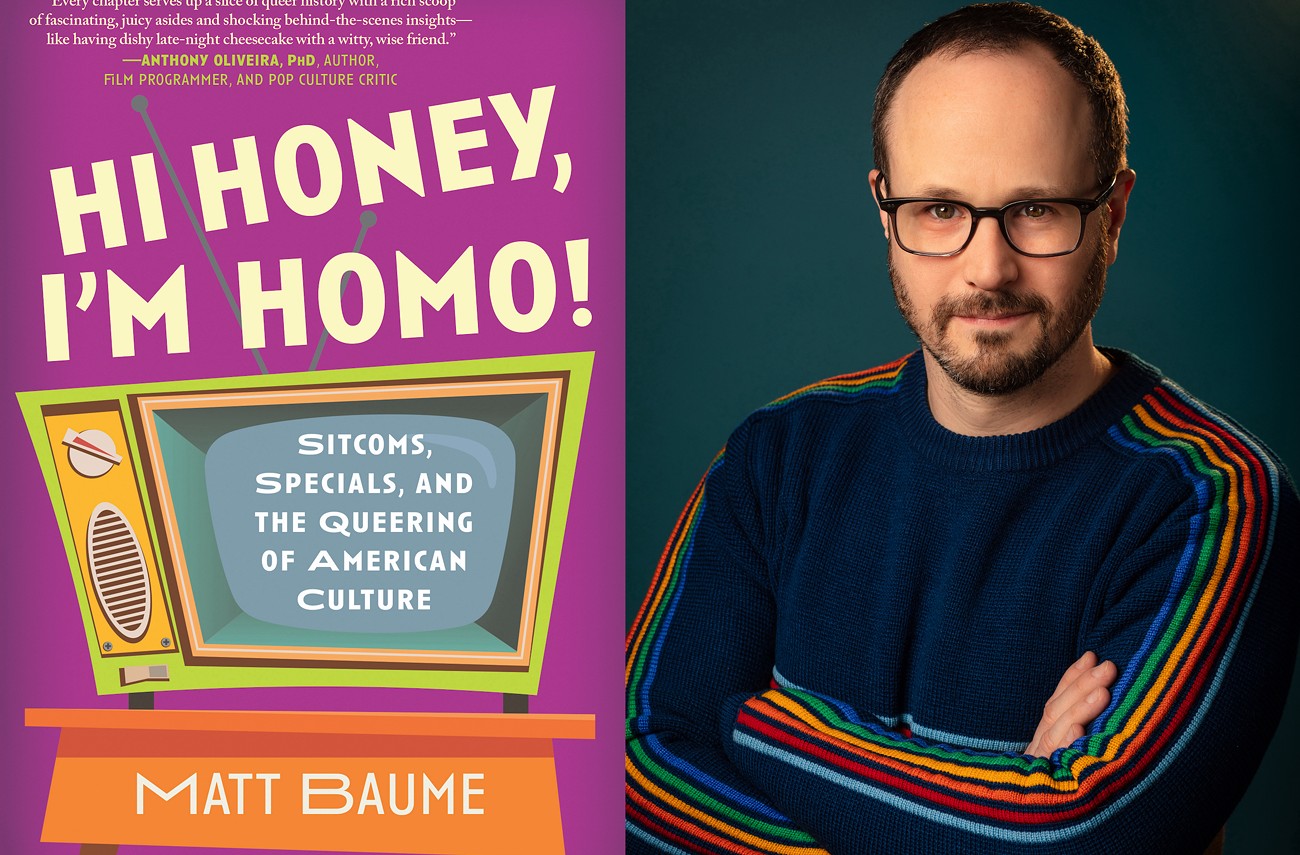15 Queer-Owned Restaurants in Portland
Meals 4 Heels, Speed-O Cappuccino, and More
The Portland Mercury's 2023 Queer Guide: Pride Is Forever Now
When is Portland Pride? July. But also just always.
Protests and Threats Cast a Pall Over Oregon Pride Celebrations
Some see Oregon as a haven for queer rights, but emboldened anti-LGBTQ+ harassment ruined quite a few Pride events in 2023.
You Don’t Have to Be Drunk to Love Drunk Herstory
Creator and host Shandi Evans says the comedy drag night's first sober storyteller told "hands down the most insane story we've ever done."
Portland Pride Is in July? An Explainer.
Why did the parade and festival move, and why do we love June so much anyway?
A Mother's Fight for Her Gay Son's Military Honors
The Navy discharged Martin Cerezo for being gay. His mother is now fighting for LGBTQ vets across the nation.
Candid Ramblings Rhymes with Refreshing Directness
Being in Portland helped rapper Lakeeyscia Griffin find the confidence to write a song about her partner.
Hi Honey, I'm Homo Is History That Won't Depress You During Pride
Culture critic Matt Baume not only recounts Sitcom TV's tea—he reads the leaves.
Queer history has had some terrific chroniclers. Open a copy of the Mayor of Castro Street in a bookshop and read the first few pages—now, I dare you to put it down. (Take the Mayor of Castro Street Challenge!) It's the same with Stonewall: A Building. An Uprising. A Revolution; it's the same with Let the Record Show. There aren't nearly enough queer history books out there, but there are some very good ones.
To this fine lineage we can add the unpretentious and convivial collection Hi Honey, I’m Homo by Matt Baume, just published by Penguin Random House imprint Smart Pop. Baume's collected essays on finding queer throughlines in American TV sitcoms read like the queer version of Susan J. Douglas' 1994 exploration of women in the media Where the Girls Are—smart, snappy, and about as catchy as a book can get. Moreover, it's history that won't depress you during Pride.
The depth of information Hi Honey offers is impressive, while the layers remain approachable. For instance, Dick Sargent AKA the second Darrin on Bewitched was a closeted gay man during the show's filming. That's fairly common knowledge, and Baume conveys it sans knowing eye roll. What we didn't know was that Elizabeth Montgomery, who played Samantha, was a staunch advocate for gay rights. Baume includes a '94 quote where she demurs but confirms the cast's pressure on the show to use the story of a homemaker witch, hiding her awesome powers, to touch on themes of repression and "people not being what they really are." Baume's allusions to witches as metaphor for queer fabulousness are great too.
Regular readers of our sister publication The Stranger—where Baume was a cultural critic for nearly two decades—may recognize some of the concepts from essays and ideas Baume worked out within that pub's column lengths. The book's Golden Girls section begins in an almost identical way to the piece he wrote for Betty White's hundredth birthday. But Baume's book is simultaneously more focused and fleshed out.
Each chapter opens with a pleasantly pithy grab—so don’t peek ahead from Golden Girls to Dinosaurs, or you’ll be in for another affable rollercoaster ride of interesting history. Baume not only recounts the tea but reads the leaves, parsing moments and metaphors in an episode of Dinosaurs that telegraphed messages of tolerance via letter jacket-wearing teen dinosaur Robbie exploring vegetarianism. The Dinosaurs chapter also exemplifies moments when Baume's attempt at connecting an episode's concept with queerness gave us pause. Sure, it works for us, but did the writers intend that? Luckily Baume is more than willing to admit some of his suppositions are just that. "Did Dinosaurs mean to reference homosexuality with this episode or communism?" he writes. "Probably both."
Still, at least 75 percent of the book feels locked down, proving Baume's concept of queer stories on sitcoms influencing larger culture. The notes portion is a forest of sources. Hi Honey is a great read for fans of pop culture, but would also present a finishable quest for those who just want to inhale a slice of queer history without too much peril.
Above all, what we took away from Baume's book was the encouragement of seeing so many people, painstakingly working, throughout history, for queer visibility. Their work supports us even now. It is giving us: We were here with you all along, and we are with you still.














